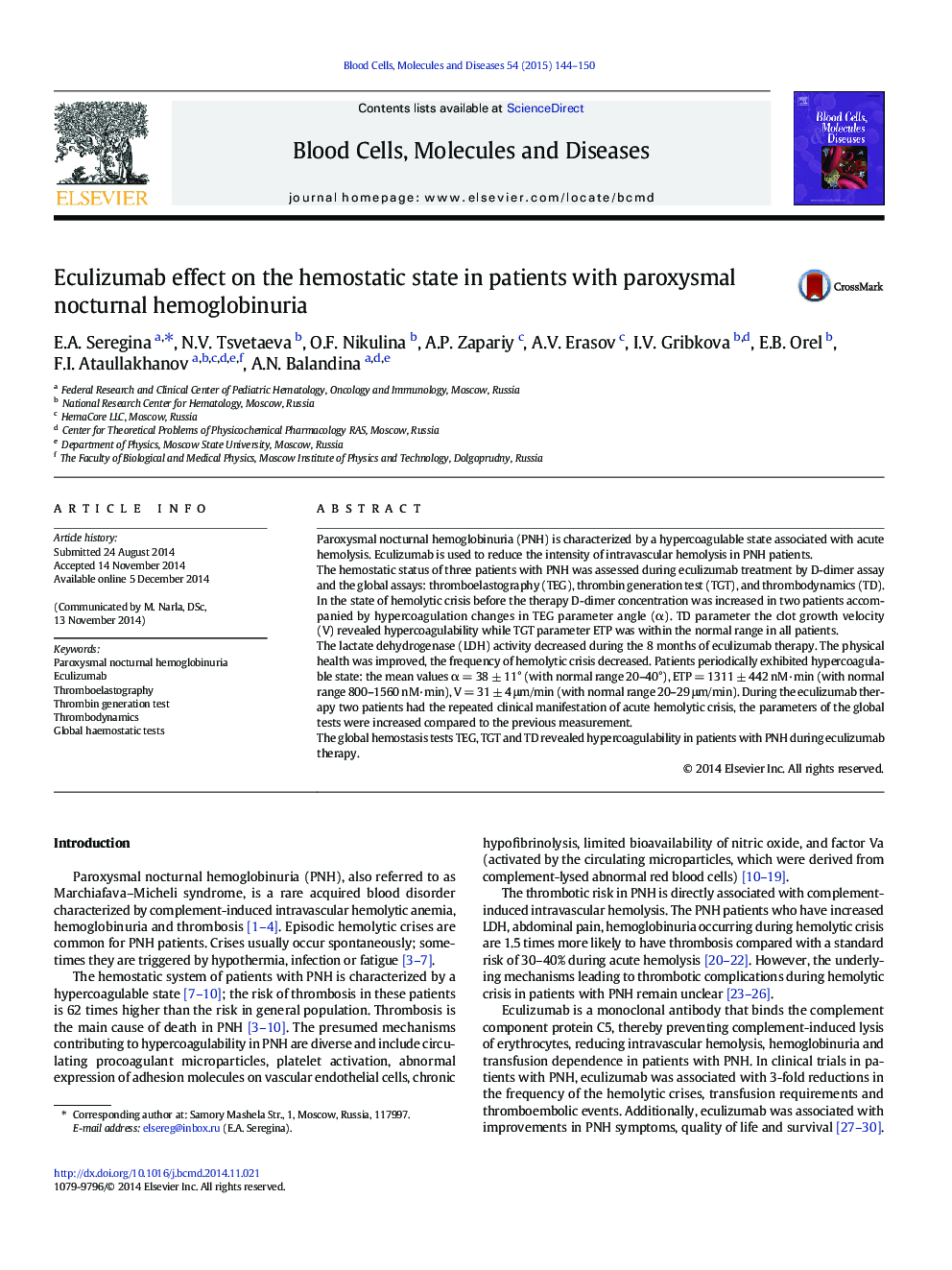| Article ID | Journal | Published Year | Pages | File Type |
|---|---|---|---|---|
| 2827150 | Blood Cells, Molecules, and Diseases | 2015 | 7 Pages |
Paroxysmal nocturnal hemoglobinuria (PNH) is characterized by a hypercoagulable state associated with acute hemolysis. Eculizumab is used to reduce the intensity of intravascular hemolysis in PNH patients.The hemostatic status of three patients with PNH was assessed during eculizumab treatment by D-dimer assay and the global assays: thromboelastography (TEG), thrombin generation test (TGТ), and thrombodynamics (TD).In the state of hemolytic crisis before the therapy D-dimer concentration was increased in two patients accompanied by hypercoagulation changes in TEG parameter angle (α). TD parameter the clot growth velocity (V) revealed hypercoagulability while TGT parameter ETP was within the normal range in all patients.The lactate dehydrogenase (LDH) activity decreased during the 8 months of eculizumab therapy. The physical health was improved, the frequency of hemolytic crisis decreased. Patients periodically exhibited hypercoagulable state: the mean values α = 38 ± 11° (with normal range 20–40°), ETP = 1311 ± 442 nM·min (with normal range 800–1560 nM·min), V = 31 ± 4 μm/min (with normal range 20–29 μm/min). During the eculizumab therapy two patients had the repeated clinical manifestation of acute hemolytic crisis, the parameters of the global tests were increased compared to the previous measurement.The global hemostasis tests TEG, TGT and TD revealed hypercoagulability in patients with PNH during eculizumab therapy.
